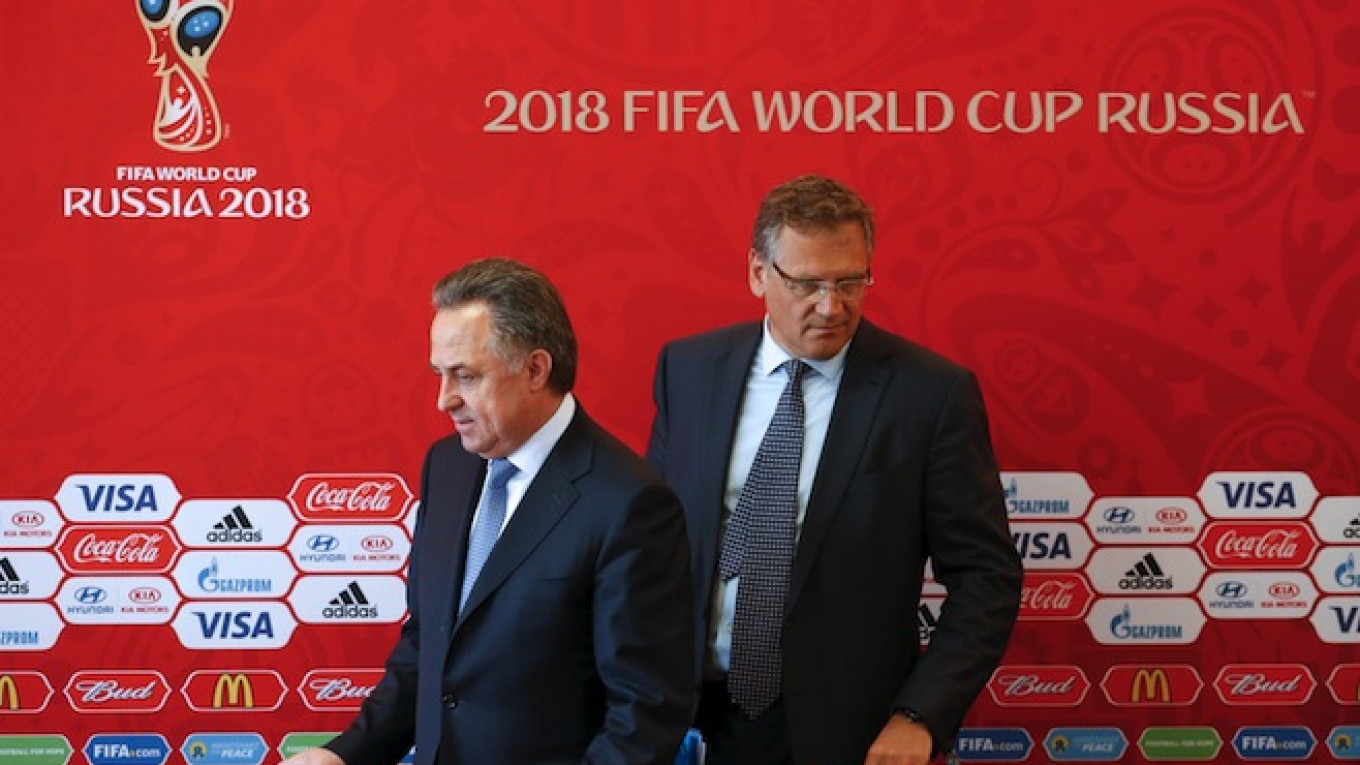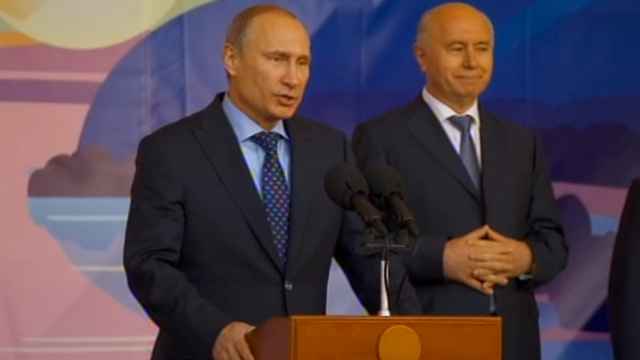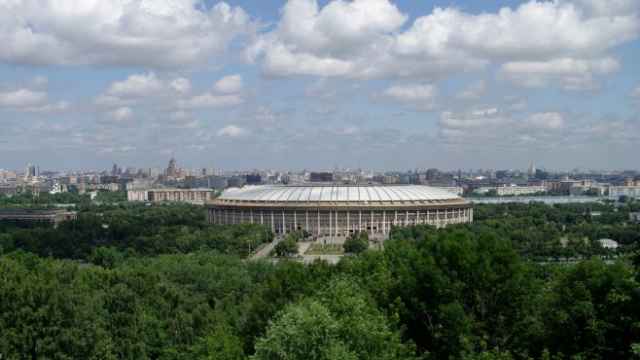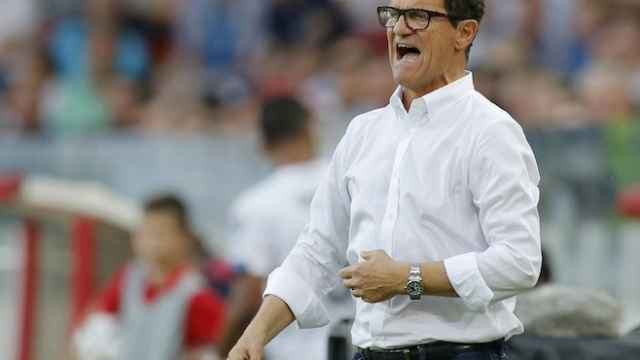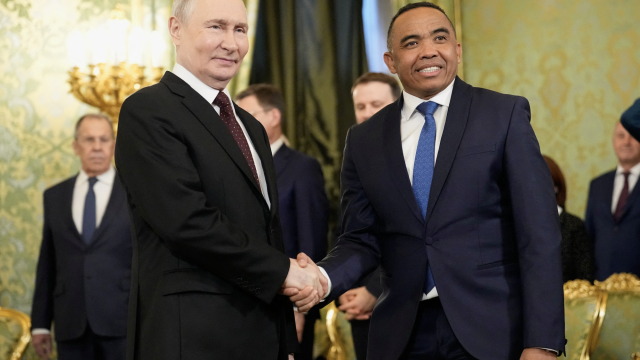The Russian government ordered 30 billion rubles ($560 million) in cuts in spending on the 2018 World Cup finals on Monday, the latest cutback as an economic crisis takes a toll.
No reason was given for the decision, but Russia has been forced to cut costs since the global price of oil collapsed last year and Western governments imposed economic sanctions over Moscow's role in the crisis in Ukraine.
A decree issued by the government said total spending on the tournament would now be 631.5 billion rubles ($11.8 billion) but Sports Minister Vitaly Mutko said the building and renovation of stadiums would not be affected.
"We proceed from the fact that we're working on a revision of the (World Cup) budget. Of course it's a question of optimizing the preparations. We're primarily taking out the excess hotels," he told reporters.
President Vladimir Putin says he is confident Russia will host the finals despite investigations into alleged corruption at soccer's governing body FIFA and how Russia was awarded the 2018 finals.
"We won in a free fight and we are going to host the World Cup," he told Reuters and other international news agencies in the city of St Petersburg on Saturday.
Personal and National Ambitions
Putin will do all he can to ensure the finals are not taken away from Russia, especially as a presidential election is due in 2018 and he sees the tournament as a chance to showcase Russia as a modern state; but Russia has been forced to lower its sights as the economic downturn worsens.
Russia won the right to host the finals with a bid promising to build six new stadiums, hotels, training grounds and health facilities. Costly airport renovations and high-speed rail links are also needed to ease travel between the 11 host cities.
Before the new government decree, the World Cup organizers had already axed plans to build 25 hotels, cut the number of training grounds and reduced the capacity of some of the venues to save on building costs.
Building materials are now being sourced locally from Russian providers because of the ruble’s decline against the U.S. dollar in the past year, pushing up construction costs.
Russia also hopes to avoid criticism over the price tag after the cost of hosting the Winter Olympics in Sochi last year soared and put the spotlight on Russia's problems with corruption and cronyism.
A Message from The Moscow Times:
Dear readers,
We are facing unprecedented challenges. Russia's Prosecutor General's Office has designated The Moscow Times as an "undesirable" organization, criminalizing our work and putting our staff at risk of prosecution. This follows our earlier unjust labeling as a "foreign agent."
These actions are direct attempts to silence independent journalism in Russia. The authorities claim our work "discredits the decisions of the Russian leadership." We see things differently: we strive to provide accurate, unbiased reporting on Russia.
We, the journalists of The Moscow Times, refuse to be silenced. But to continue our work, we need your help.
Your support, no matter how small, makes a world of difference. If you can, please support us monthly starting from just $2. It's quick to set up, and every contribution makes a significant impact.
By supporting The Moscow Times, you're defending open, independent journalism in the face of repression. Thank you for standing with us.
Remind me later.


